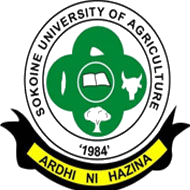A recent study by Dawite et al. (2025), published in the International Journal of Animal Science and Technology, explores the current manure management practices and factors influencing the adoption of biogas technology among smallholder dairy farmers in Northern Tanzania. The research provides timely insights into sustainable waste management solutions and renewable energy opportunities for rural households.
 The study was conducted in Kilimanjaro and Arusha regions areas characterized by high dairy farming activity and substantial manure production. Using a cross-sectional survey design, data were collected from 204 randomly selected smallholder dairy farmers. The researchers employed structured questionnaires and focus group discussions to gather comprehensive information on manure handling systems, biogas use, and socioeconomic factors.
The study was conducted in Kilimanjaro and Arusha regions areas characterized by high dairy farming activity and substantial manure production. Using a cross-sectional survey design, data were collected from 204 randomly selected smallholder dairy farmers. The researchers employed structured questionnaires and focus group discussions to gather comprehensive information on manure handling systems, biogas use, and socioeconomic factors.
Results showed that over 70% of farmers practiced manual collection and direct application of manure to crop fields, while only 16% had adopted biogas digesters for manure processing. A significant proportion of manure was underutilized or mismanaged, contributing to environmental pollution and greenhouse gas emissions. Important factors positively influencing biogas adoption included higher education levels, access to extension services, credit availability, and training on renewable energy. Additionally, households with more dairy cows, better housing infrastructure, and awareness of biogas benefits were more likely to install digesters. Conversely, barriers such as high initial investment costs, limited technical support, and inadequate knowledge of biogas systems hindered wider adoption.

The study concludes that promoting biogas technology could enhance environmental sustainability, improve manure utilization, and reduce dependency on firewood and charcoal in rural Tanzania. However, a multi-stakeholder approach is needed to overcome socioeconomic and institutional barriers. Recommended interventions include increased farmer sensitization, training programs, access to affordable credit, and government incentives for renewable energy uptake.

This research highlights the potential for integrating manure management with clean energy production to support climate-smart livestock systems. It is highly serves as a valuable reference for policymakers, development partners, and researchers working on sustainable agriculture, environmental conservation, and rural energy solutions.

For full access to the article:
Dawite, S., Maleko, D. D., Selemani, I. S., Lyatuu, E. T., Komwihangilo, D. M., et al. (2025). Manure Management Systems and Factors Influencing Biogas Technology Adoption Among Smallholder Dairy Farmers in Northern Tanzania. International Journal of Animal Science and Technology, 9(2), 100–111. https://doi.org/10.11648/j.ijast.20250902.18


The Department of Animal, Aquaculture, and Range Sciences
The College of Agriculture, Sokoine University of Agriculture
Share this page

